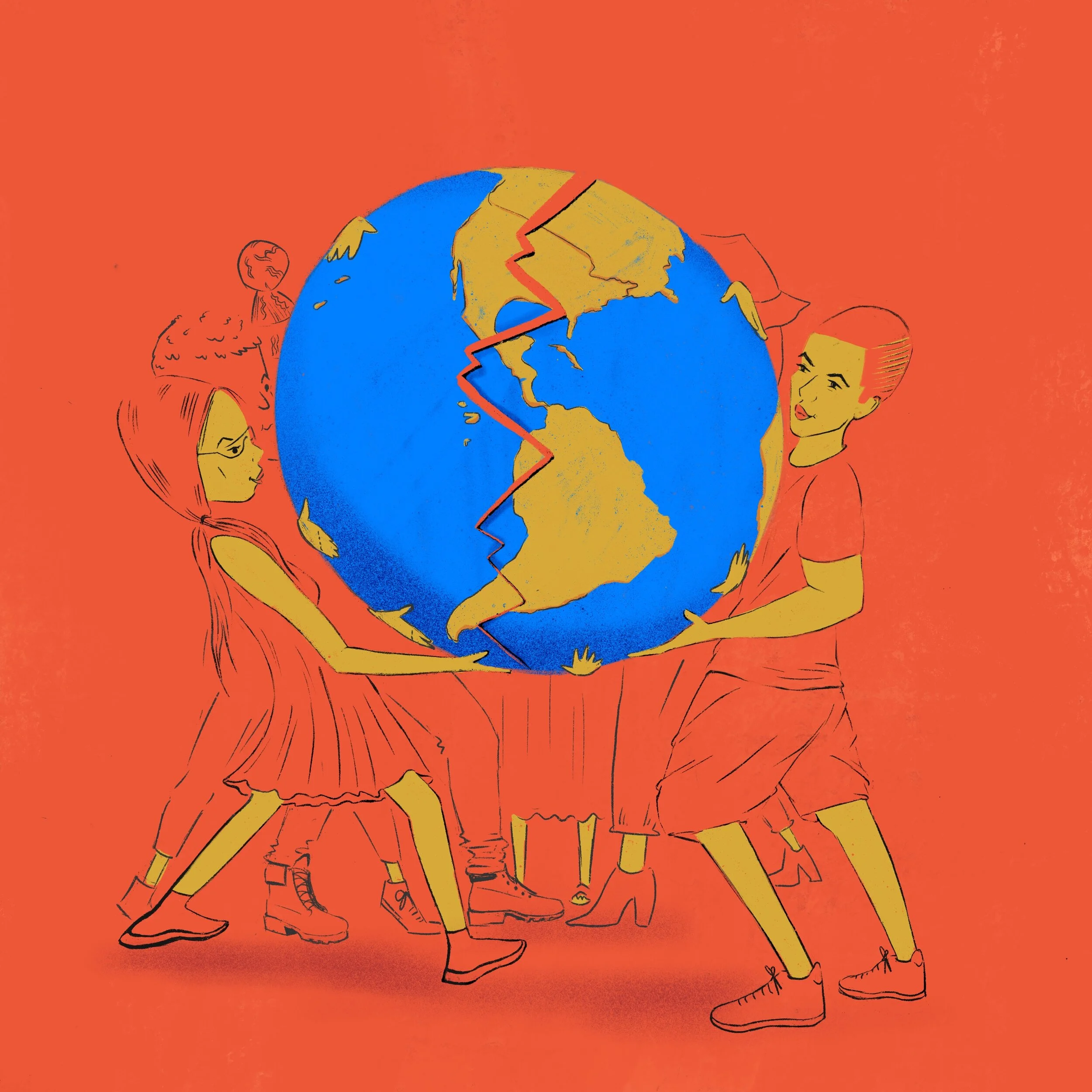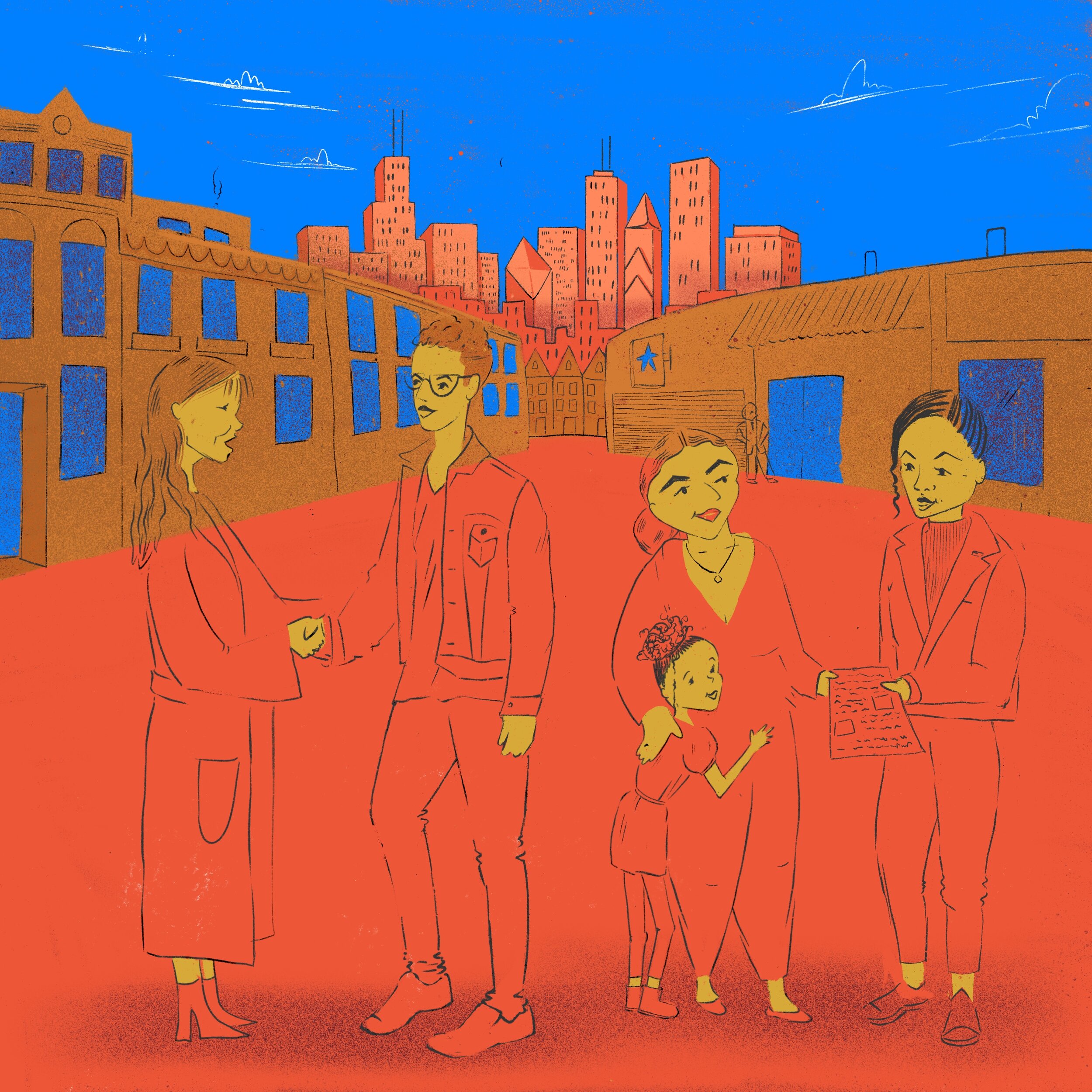The Square One Foundation welcomes applications from organizations that align with our mission, program areas, and the funding guidelines described below.
We are a family foundation that makes more than grants.
We foster conversations, create collaborations and work to expand access to social and economic opportunity in Chicago. Our role as a funder is to bring together communities, to empower those without a voice to be heard and to trust those we fund to do what they do best.
As a small family foundation with limited resources, our preference is to support small- to medium-size organizations where our funding will make a meaningful difference.
gUIDING PRINCIPLES
Participation
Those most impacted by the issues we are addressing bring the most important voices into the conversation. Sustainable and effective solutions will only be possible when stakeholders are part of the process—from understanding the challenge to designing and implementing the solution and finally to evaluating results.
Innovation
The challenges we seek to address require bold, creative ideas and a willingness to take risks. With origins in a family business that brought innovative solutions to practical challenges, we aspire to spark new approaches to seemingly intractable problems.
collaboration
Stimulating cross-sector collaborations and mobilizing stakeholders to create shared solutions will amplify the work of individual organizations and result in long-lasting systemic change.
learning
We must constantly be improving and adapting to a rapidly changing, dynamic and complex world. We aspire to learn from and with our grantee partners and to share our learnings with others when useful.
MISSION & PROGRAM AREAS
Square One Foundation’s mission is to realize equitable access to educational, civic, and economic opportunity for all Chicagoans.
We strive to be open and accessible for prospective grantees that work in our three program areas: Education, Democracy, and Inclusive & Just Economy. Within each of the three areas, we have a singular goal and specific priorities that we believe will advance progress toward that goal.
Eligibility
We discourage organizations that are working in other areas from applying in the interest of preserving their valuable time and resources (e.g., social services; arts and culture; health; environment; etc.).
To be eligible for consideration, applicants must meet the following requirements:
Be a nonprofit organization with 501(c)(3) tax-exempt status or have a fiscal sponsor that has 501(c)(3) tax-exempt status
Align with the foundation’s goals and priorities for at least one program area
Have audited financial statements or external financial reviews
Have been in operation for at least three years
Operate in and primarily benefit the Chicago region
Exclusions
The foundation does NOT support:
Grants for individuals
Direct services to individuals
Fundraising events or sponsorships
Capital or endowment campaigns
Capital projects or equipment purchases
Religious activities
Political organizations or campaigns
Lobbying or activities to influence elections or legislation
Debt reduction or operating deficits
General facts about our funding
Types of grants: The foundation will consider requests for general operating support or project support.
Size of grants: First-time grants typically range between $25,000 and $50,000. Requests exceeding this range are unlikely to be considered.
Multi-year grants: The foundation may consider multi-year grants after the first year of support. Multi-year grants are rarely made to first-time applicants.
Budget size: We prefer to support small- to medium-size organizations with budgets under $5 million annually.
We offer these details in order to be as transparent as possible and to conserve the valuable time of potential applicants. We strongly encourage grantseekers to adhere to these parameters for the best chances of further consideration.
Additional criteria
The foundation recognizes that many, if not all, of the problems it addresses in its three program areas are rooted in deep systemic and structural racism. The foundation prioritizes applicants who are working to change systems of inequality and structural racism and demonstrate commitment to advancing racial justice, equity, and inclusion within their organizations, communities, and broaden the systems in which they work. We prioritize action-oriented solutions that seek to prevent or intervene early in addressing a challenge. We desire to work with partners who have big ambitions and bring an “activist mindset” to their ideas.
Other things we look for among all prospective grantees:
Is the work community-driven? The people most affected by any issue must be at the center of leading the solutions and change agenda. In our program areas, this means that the voices, needs, and perspectives of low-income communities of color must be evident in everything the applicant does, from strategy to implementation and evaluation.
Does the work build civic engagement? Activities should enable the development of tangible, transferable civic skills among constituents. This may employ grassroots organizing, advocacy, and education to build power for the transformation of communities.
Will the work advance structural solutions? Applicants should articulate a clear and strategic vision for advancing an equitable system. They should also demonstrate an awareness of the broader field and best practices in bringing about change.
Is the work collaborative and/or innovative? The foundation is interested in filling gaps in existing strategies or solutions by testing new approaches through pilot/demonstration programs. It is also committed to help forge new coalitions, work across disciplines, and take risks.
Does the work demonstrate a commitment to assessing impact for the purpose of continuous learning and improvement? The foundation wants to learn with and from grantees about how they define and observe success. We adhere to the principles of the Equitable Evaluation Initiative in our approach to assessing impact.
Can the Square One Foundation’s support make a meaningful difference? We recognize that there are many, many organizations doing excellent work that are worthy of support. And our limited resources preclude us from being able to support them all. We prioritize requests where timing, role, context, and the opportunity to add value beyond financial support alone all align to achieve our goals.








